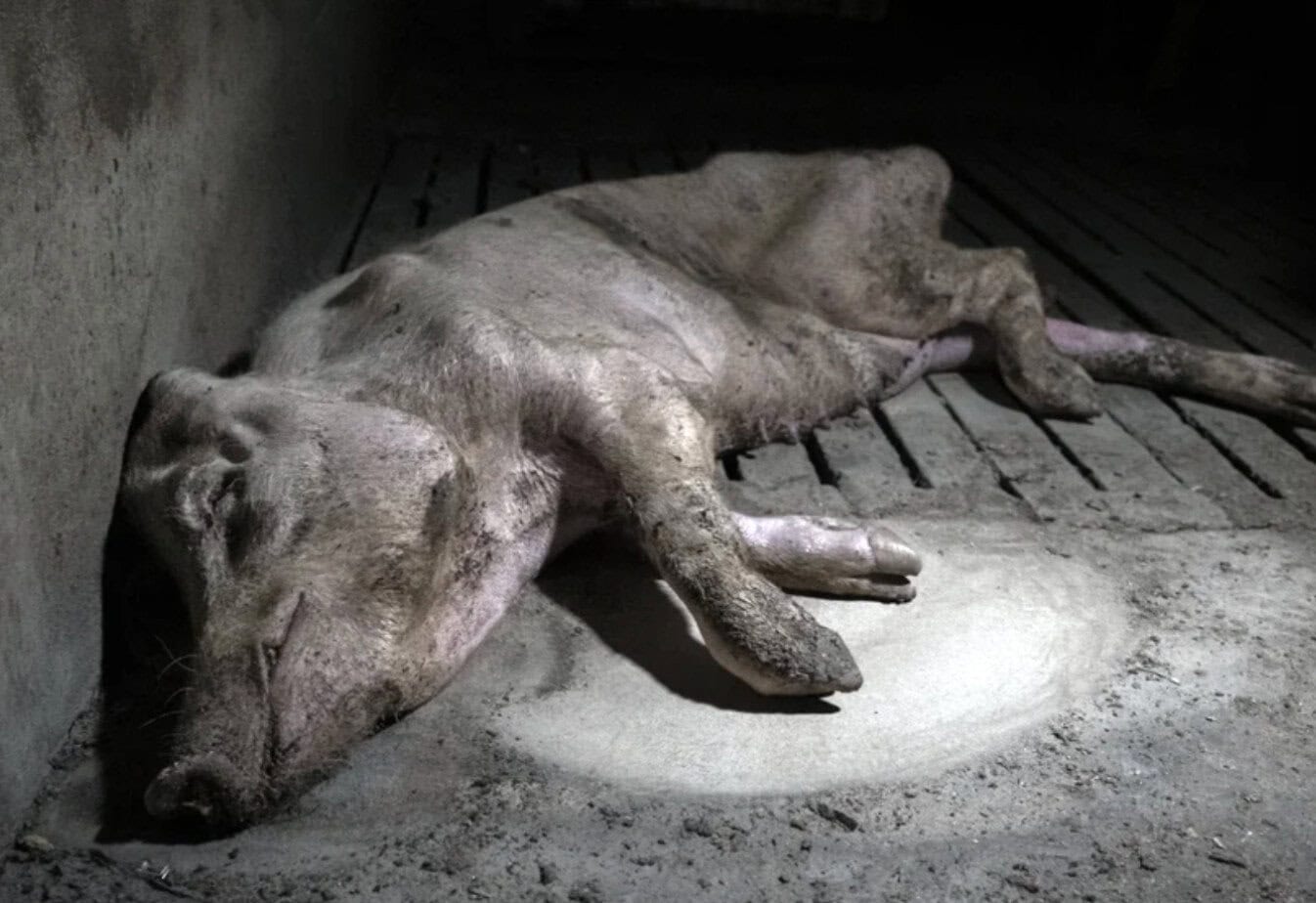A new investigation has revealed disturbing conditions on intensive pig farms in Northern Ireland that may pose a risk to human health.
The joint report, published by Animal Justice Project and AGtivist, connects these farms to the growing threat of antibiotic-resistant bacteria, also known as “superbugs.”
The farms are linked to major meat suppliers Cranswick, Karro, and Finnebrogue. The companies supply pork products to leading supermarkets like Tesco, Asda and M&S.
The investigation claims that pigs on these farms live in crowded, dirty conditions, with antibiotics used widely to prevent disease rather than to treat it.
On all four farms investigated, the researchers found high levels of antibiotic use, including drugs listed by the World Health Organization as “Highest Priority Critically Important Antibiotics” (HPCIA). These are medicines that are essential for treating serious infections in humans.
Many of these antibiotics are given through food or water to large groups of pigs, while others are injected. The researchers also found large amounts of vaccines being used. This suggests that piglets were medicated heavily to survive the poor living conditions.
Pigs kept in horrible conditions
Despite the heavy drugs used for animals, the footage from the farms shows animals in visible distress, with some pigs appearing extremely sick, thin or injured.
Dead piglets were found across the farms. Some appeared to have been killed using illegal methods, such as being slammed onto hard surfaces, a method known as “thumping.”
Pigs were seen lying in their own waste inside overcrowded sheds. Mother pigs were kept in farrowing crates. These are metal cages so small that the animals cannot turn around.
Others were held overnight in insemination crates, despite regulations limiting the time pigs can be kept in these devices. Several sows had open sores, likely caused by rubbing against the metal bars for extended periods.
Antibiotics in animal farming
The use of antibiotics in animal farming is a global concern. According to the World Health Organization, around 73% of all antibiotics are used in livestock.
Overuse in farming contributes to antibiotic resistance, making it harder to treat infections in humans. In 2023, there were 66,730 serious antibiotic-resistant infections in the UK, and 2,200 people died as a result.
The NHS spends an estimated £180 million a year treating these infections. Without urgent action, experts warn that by 2050, antibiotic resistance could kill 10 million people each year globally and cost the world economy $100 trillion.
Campaigners warn that the public is not fully aware of the connection between cheap pork and the rise of superbugs. Veterinarian Steven McCulloch said the investigation shows a “dystopian reality” behind intensive pig farming in the UK.
A major concern is the lack of transparency. In the UK, there are no legal requirements for farmers to report how much antibiotics they use. This makes it difficult to track risks across the supply chain.
In the investigation, meat samples linked to Cranswick and Karro showed a high rate of antibiotic-resistant Salmonella typhimurium, a bacteria that can cause serious food poisoning. More than half of the samples tested from these companies were contaminated with resistant strains.
While the UK pig industry has reduced antibiotic use in recent years, animal rights groups argue that the problem remains serious, especially in intensive farms where poor welfare and hygiene increase the risk of disease.
– Advertisement –
Disclaimer : This story is auto aggregated by a computer programme and has not been created or edited by DOWNTHENEWS. Publisher: theanimalreader.com






